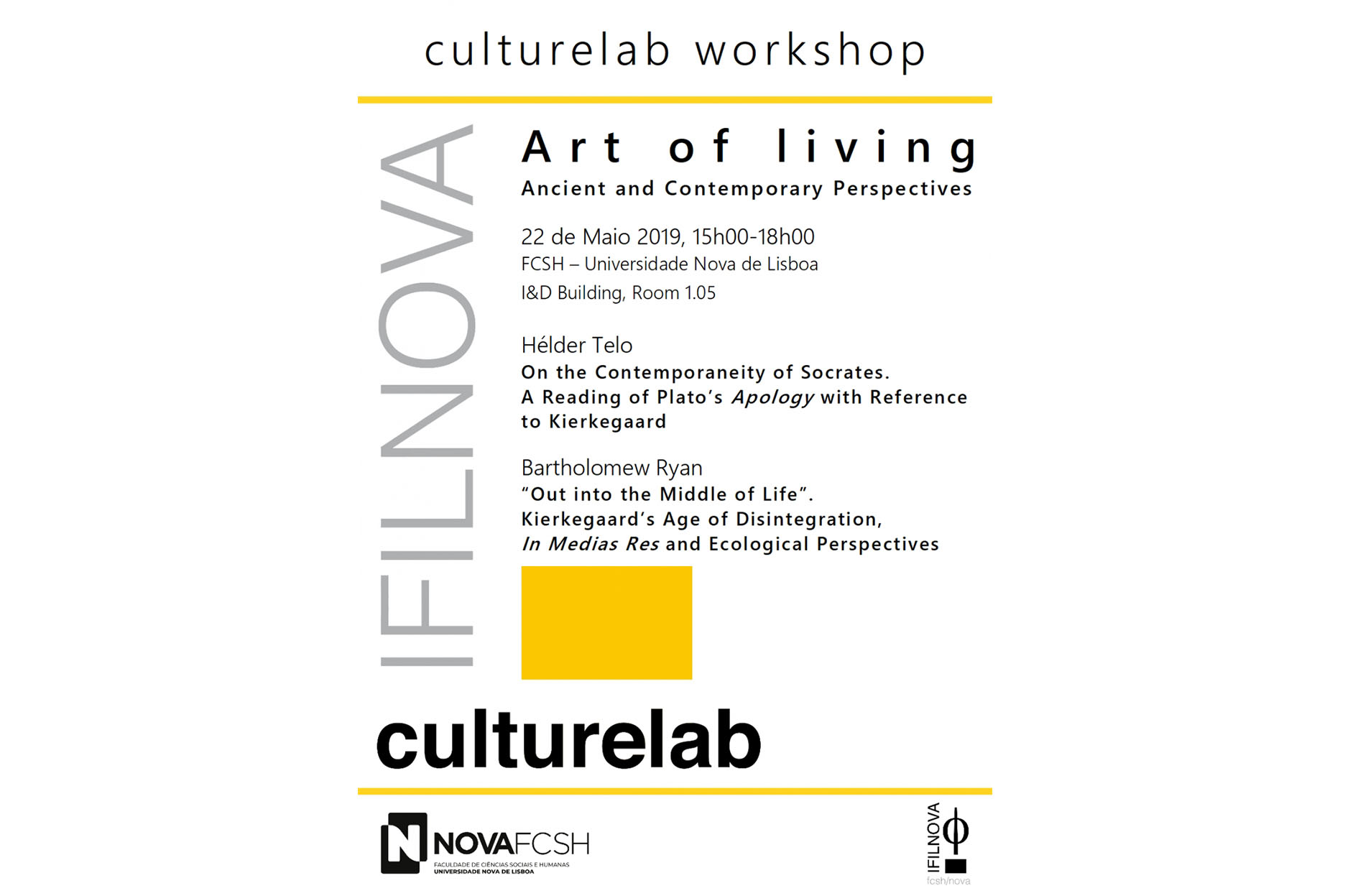Art of living: Ancient and Contemporary Perspectives

Hélder Telo: On the Contemporaneity of Socrates. A Reading of Plato’s Apology with Reference to Kierkegaard
Plato’s Apology depicts Socrates as the embodiment of philosophy and as someone that exhorts his jurors – as well as any reader of the text – to stop leading an unexamined life and devote themselves to philosophical examination. However, one can easily admire the figure of Socrates and the way he is portrayed by Plato without realising the radical change of life that is implied in Socrates’ words. Indeed, one can relate to Socrates’ figure and to his exhortation in very different ways, and the goal of my paper is to discuss how we can conceive of these different relations. In order to do this, I will consider Kierkegaard’s notion of contemporaneity. Throughout his work, Kierkegaard criticises the usual relation to Christ as being a relation of admiration at a distance and stresses the importance of being contemporary with Christ, which involves among other things realising the extraordinarily difficult demand the latter places open us. Likewise, in some passages of his Journals and Papers, Kierkegaard alludes to the difficulty involved in being contemporary with Socrates. Based on this, I will consider what the Apology tells us about the different ways of relation to Socrates and his exhortation.
Bartholomew Ryan: ‘Out into the Middle of Life’: Kierkegaard’s Age of Disintegration, In Medias Res & Ecological Perspectives
This essay is an attempt to link aspects of Kierkegaard’s experimental writings with new contemporary ecological perspectives which – in the act of interpenetration – are fusing philosophy, science, literature, anthropology, political thought, new economic perspectives, and visual and sound media in order to open up new ways to live and flourish on a damaged planet – in our “age of disintegration.” I present Kierkegaard’s diagnosis of his time as “the age of disintegration” (from 1848) as something that can be connected to the contemporary socio-political conditions in late modernity, and to the new epoch on the horizon which we are now experiencing. I interpret Kierkegaard’s expression “out into the middle of life” as the kernel of Kierkegaard’s authorship of interruption and unsettling, as the philosopher of the interlude and re-enacting the activity of in medias res in his thought and for human existence, and which I argue can be implicitly included in aspects of ecological perspectives offered by innovative writers today.

